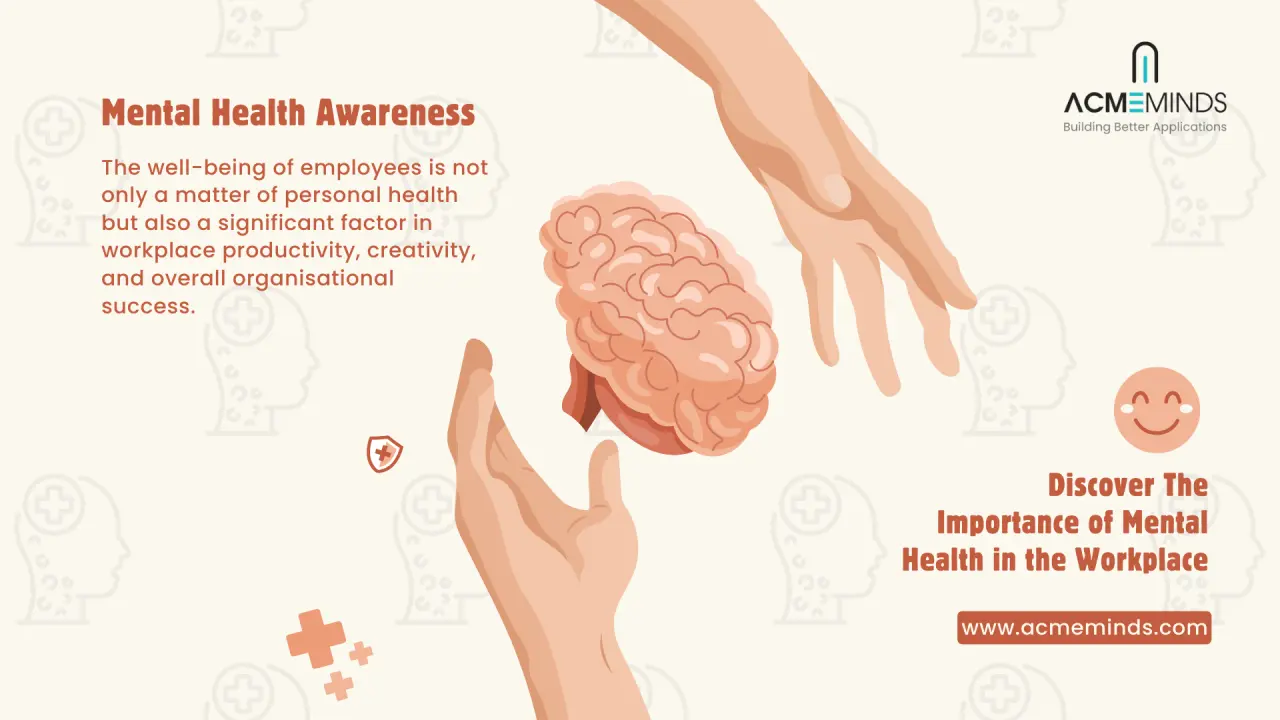Mental Health Awareness: The Importance of Mental Health in the Workplace
The well-being of employees is not only a matter of personal health but also a significant factor in workplace productivity, creativity, and overall organisational success. Supporting employees’ mental well-being requires a proactive and comprehensive approach that encompasses various strategies and practices. Here, we explore the importance of mental health awareness and practical ways to support employees in maintaining their mental health.
Creating a Supportive Work Environment
- Foster Open Communication: Encourage a culture of open communication where employees feel comfortable discussing their mental health concerns without fear of stigma or discrimination. Leaders should model this behaviour by being open about their own experiences and actively listening to employees.
- Provide Training and Resources: Equip managers and employees with the knowledge and tools to recognise signs of mental health issues and provide appropriate support. This can include training on mental health first aid, stress management workshops, and access to mental health resources.
- Promote Work-Life Balance: Promote a sustainable work environment by encouraging employees to prioritise their well-being. Establish clear, achievable goals and offer flexible working hours to accommodate diverse needs. Actively discourage prolonged overtime and emphasize the importance of taking regular breaks and utilising vacation days to ensure a healthy, balanced life.
- Offer Employee Assistance Programs (EAPs): EAPs provide confidential counselling and support services to employees dealing with personal or work-related issues.
- Encourage Physical Activity: Mental well-being is deeply connected to physical health. Encourage regular exercise by introducing wellness initiatives, organising group fitness activities, and providing access to gym facilities. Prioritise holistic health to foster a thriving and balanced workforce.
Addressing Workplace Stress
Workplace stress is a significant contributor to poor mental health. To address this, organisations can:
- Identify Stressors: Conduct regular surveys and assessments to identify common stressors in the workplace. Address these issues through policy changes, improved processes, and better resource allocation.
- Provide Supportive Leadership: Leaders play a crucial role in managing stress. Supportive leadership involves recognising employees’ efforts, providing constructive feedback, and offering guidance and support when needed.
- Encourage Mindfulness Practices: Mindfulness practices, such as meditation and yoga, can help employees manage stress and improve their mental well-being. Offer mindfulness sessions or create quiet spaces where employees can practice mindfulness techniques
Building a Resilient Workforce
Resilience is the ability to bounce back from challenges and setbacks. Building a resilient workforce involves:
- Promoting a Growth Mindset: Motivate employees to see challenges as stepping stones for personal and professional development. Offer training sessions on resilience and stress management, and highlight the power of maintaining a positive outlook to foster continuous growth and adaptability.
- Fostering Social Connections: Strong social connections can provide emotional support and help employees cope with stress. Organise team-building activities and create opportunities for employees to connect and build relationships.
- Recognising and Celebrating Achievements: Regularly recognise and celebrate employees’ big and small achievements. This can boost morale, build confidence, and reinforce a sense of purpose and accomplishment.
Conclusion
Supporting employees’ mental well-being is not just a compassionate approach but also a strategic business decision. By creating a supportive work environment, addressing workplace stress, and building a resilient workforce, organisations can enhance employee satisfaction, reduce turnover, and improve overall productivity. Mental health awareness should be an ongoing priority, with continuous efforts to promote well-being and create a positive workplace culture. Investing in mental health is an investment in the future success and sustainability of the organisation.



